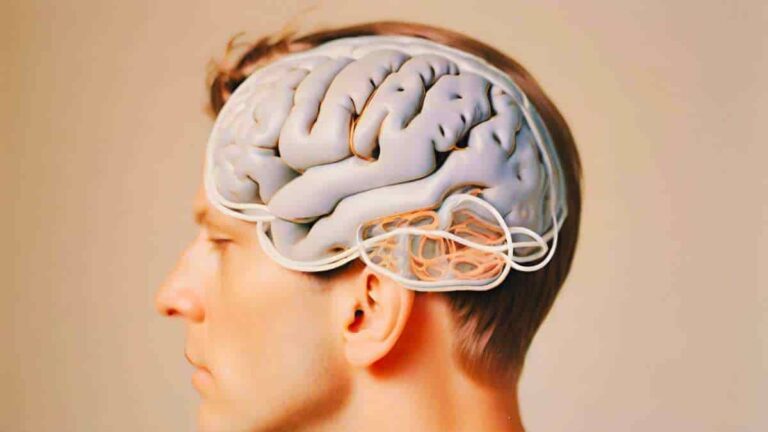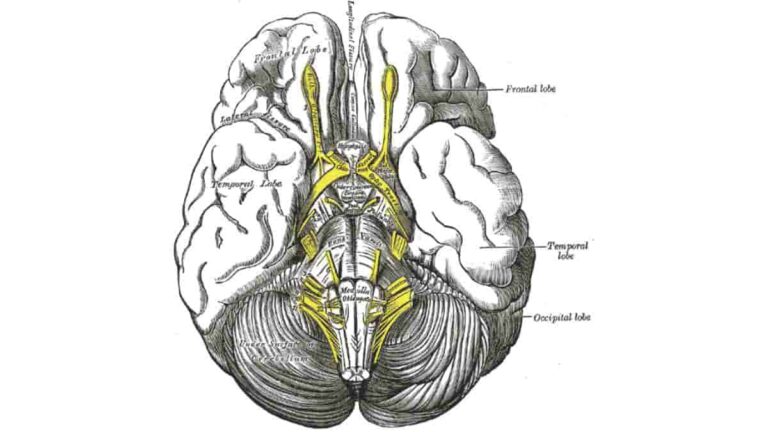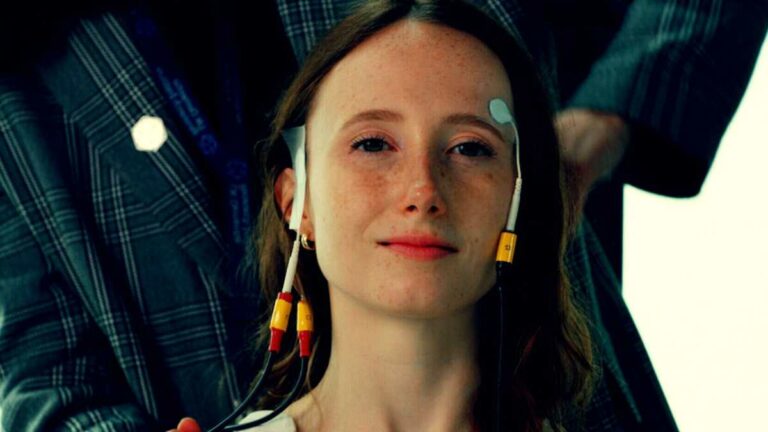Researchers from Vanderbilt University report that when people having their brains scanned by fMRI perform a task, such as wiggling their fingers, blood oxygenation-level dependent (BOLD) signals increase in white matter throughout the brain. “We don’t know what this means. We just know that something is happening. There truly is a powerful signal in the…
What is the Optic Chiasm?
The optic chiasm, also known as the optic chiasma, is the region of the brain where the optic nerves from the right and left eyes intersect. It is situated at the base of the brain, directly beneath the hypothalamus. The optic nerves of the left and right eyes meet in the body’s midline, ventral to…
Temporal Interference Brain Stimulation Promising for Dementia Treatment
Researchers at Imperial College London are leading the development and testing of a novel brain stimulation technique that may offer an alternative therapy for diseases of the brain like Alzheimer’s and the memory loss that goes along with it. The non-invasive technique, known as temporal interference (TI), delivers electrical fields to the brain via electrodes…
Why Anger and Guilt Don’t Always Match Up in Relationships
It’s normal for you to feel upset and for your friend to feel guilty when they make a mistake, such as forgetting a birthday, cancelling plans, or failing to complete their share of the work. It’s tempting to think that their remorse will grow as your anger rises if they make a mistake again. But…
Short Sleep Duration Linked with Onset of Depression Symptoms
According to a recent genetic study by UCL (University College London) researchers, sleeping less than five hours per night may increase the risk of developing depressive symptoms. Previously, poor sleep was thought to be a side effect of mental illness, but this study discovered that the relationship between sleep and mental disease is more nuanced.…
Decision-making Brain Areas Have Altered Activity In Teens With OCD
According to a new study from UNSW Sydney, teenagers with obsessive-compulsive disorder have difficulties in decision-making and behavioural control. This is connected to aberrant activity in the orbitofrontal cortex brain region. “OCD is highly prevalent, affecting more than 750,000 Australians. People with OCD get stuck in loops of unwanted thoughts and behaviours,” said first author…
Adults with ADHD At Higher Risk of Developing Dementia
In comparison to adults without attention-deficit/hyperactivity disorder (ADHD), adults with ADHD have a nearly three-fold increased risk of developing dementia, a Rutgers study indicates. Michal Schnaider Beeri, head of the Herbert and Jacqueline Krieger Klein Alzheimer’s Research Center at Rutgers Brain Health Institute (BHI), coauthored the study, which was published in JAMA Network Open. It…
Negative Body Image In Pregnancy – Large Individual Variations
Negative body image during pregnancy has been shown to have serious consequences for both the mother and the child. A new study has now uncovered large variations in how pregnancy can affect women’s perceptions of their own bodies, including experiences of negative body image. Overall, average levels of body image dissatisfaction were found to be…
Moral Judgment Is Harsher for Ingroup Members
According to recent Cornell University research, people are more likely to punish members of their own circles more severely than they are to punish members of other groups for the same transgressions. In this phenomenon, morality is crucial. The researchers discovered that because morality is a social glue that ties a community together, breaking moral…








